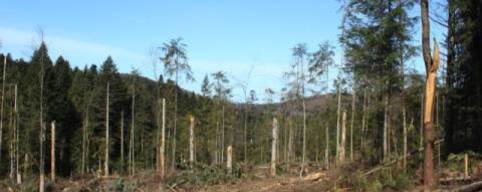

The role and potential of the forest sector in meeting climate targets has been widely debated. Of particular concern has been the ability of the land use sector to offset emissions from other sectors as logging restrictions threaten the forest industry. The Sawmill Industry Association has strongly emphasised that safeguarding the competitiveness of the sawmill industry is essential to achieving national climate targets in practice.
Logging restrictions can lead to significant economic losses and job losses in the sawmill industry. For companies such as Keitele Timber Oy, a permanent reduction in production could mean the loss of almost 100 person-years. This is not only a major blow to individual companies, but also to the sector as a whole, which employs a significant number of people in rural areas. The job losses will also have a knock-on effect on the local economy, as purchasing power and demand for services will fall.
The overall economic impact also extends to forest owners, contractors and government tax revenues. When significant amounts of raw wood are not processed, forest owners' income is reduced and subcontractors, such as the transport sector, lose contracts. In turn, the state loses tax revenues that would have been generated by the added value of forestry.
From an investment and competitiveness perspective, the restrictions may discourage new investment in the sawmill industry, slowing down the development of the sector and jeopardising its long-term competitiveness. Safeguarding the sawmill industry's operating conditions is therefore critical, according to the Sawmill Industry Association, not only to preserve jobs, but also to achieve environmental objectives.
Government policy must support companies' production and international competitiveness. Policies that restrict companies' freedom of action and ability to invest are considered to be incompatible with climate objectives if the measures lead to increased emissions in other sectors or prevent effective offsetting of emissions through land use.
For the land use sector, from the perspective of the sawmill industry, the current restrictions do not allow for effective offsetting of emissions from other sectors. Without effective solutions and realistic plans, logging restrictions on our forests can undermine economic resilience in the face of climate policy measures.
Taken together, these considerations underline the challenges that the proposed logging restrictions may pose to the Finnish sawmill industry, both in terms of economic and environmental policy. The key is to find a balance between economic and environmental interests where both industry and climate objectives can flourish. This requires cooperation between politicians, industry and citizens to build realistic and sustainable solutions for the future.



